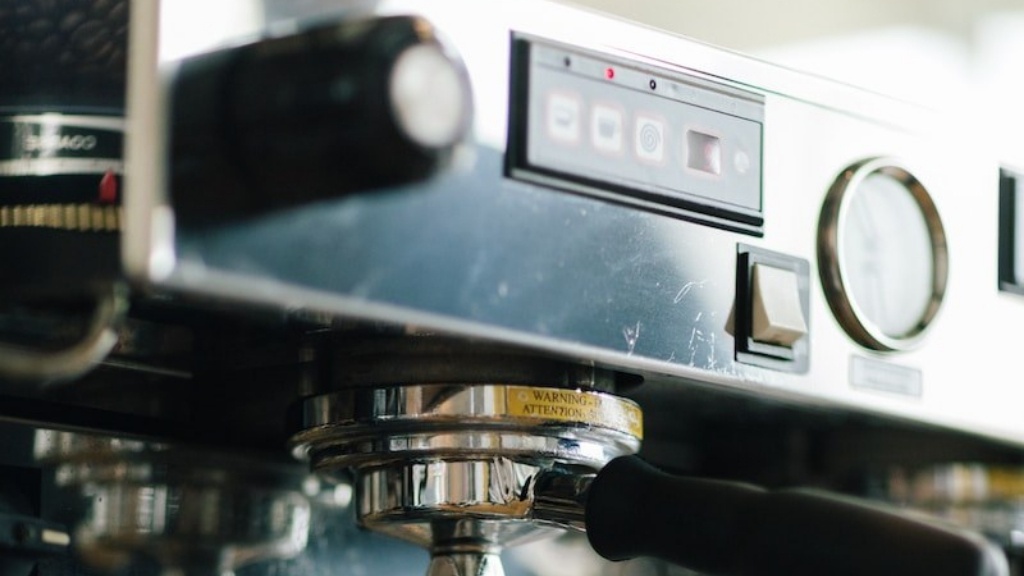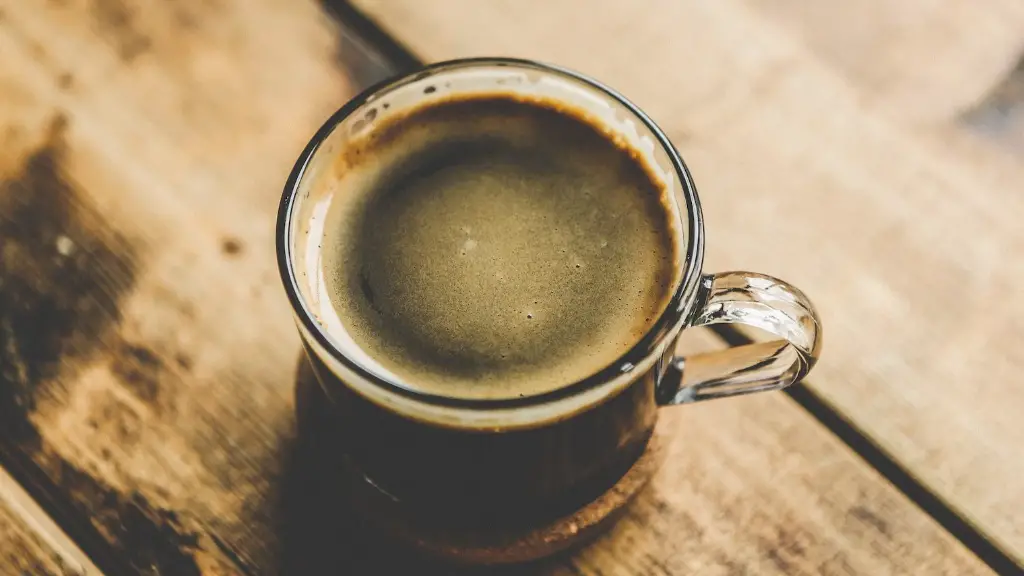Kidney stones are a hard calcium mass formed in the kidneys, and sometimes they stay in the kidney and cause no issues. But when the stones travel out of the kidneys, they can cause flank pain and,if they get into the urinary tract can cause urinary blockage, resulting in nausea and vomiting. One of the common questions often asked by doctors and kidney stone patients, is whether coffee is safe to drink.
The answer to this question depends on a variety of factors such as the individual’s history,the type of kidney stones present, and the experts’ advice. In general, coffee does not appear to increase the chances of developing a new kidney stone. Although coffee does not seem to directly cause the formation of kidney stones, it does contain a significant amount of oxalate, which is one of the compounds that contribute to kidney stone formation.
For healthy individuals and those with a history of kidney stones, the National Kidney Foundation recommends limiting the intake of caffeine and not exceeding two to three cups of coffee per day. Additionally, it’s important to drink plenty of water since this can help flush out some of the oxalate from the body, reducing the risk of kidney stone formation.
For individuals with a history of recurrent kidney stones, there is not enough evidence to clearly determine if they should drink coffee or not. One study found that drinking coffee decreased the chances of developing more kidney stones, while another study found the opposite. In general, experts recommend avoiding drinking large amounts of coffee and to talk to your doctor to get advice on whether or not it is safe for you to drink some.
Studies have also found that drinking decaffeinated coffee can be protective against developing stones, while still providing the antioxidant benefits of regular coffee. Studies have also shown that drinking heated or boiled coffee can help reduce the amount of calcium and oxalates in the drink, decreasing the chances of stone formation.
In addition to the oxalate content of coffee, the caffeine content can also have an effect on kidney stone patients. Caffeine can increase the production of urine, which can help people with kidney stones pass the stone faster. Therefore, for patients with kidney stones, it may be beneficial to drink small amounts of caffeine-containing beverages such as coffee in order to help pass the stone.
Overall, it is important for kidney stone sufferers to talk to their doctor to assess their individual situation and get medical advice. Depending on the type of kidney stone and other conditions, patients may benefit from drinking some coffee. However, it is important to remember to keep moderation in mind and drink plenty of fluids to help the body get rid of any extra mineral or oxalate that can contribute to stone formation.
Why Coffee is Preferred by Kidney Stones Patients?
Coffee is one of the most preferred beverages among kidney stones patients as it is believed to help reduce the building up of minerals and organic compounds in the body. It is believed that caffeine acts as a diuretic and causes an increase in urine production, which can help to flush out the materials that form stones in the kidney. Coffee could also help to reduce the chances of developing calcium oxalate stones, one of the most common types of stones, because it is thought to reduce the amount of calcium and oxalate in the urine.
Moreover, some studies suggest that antioxidant-rich coffee is beneficial for kidney stone patients. Coffee helps in reducing the levels of free radicals due to its natural antioxidant content. Therefore, it could help the body fight against inflammation and help the body detoxify more efficiently.
Health Benefits of Coffee for Kidney Stones Patients
Besides reducing the chances of further kidney stone development, properly caffeinated coffee can also offer certain health benefits to patients who are struggling with this condition. For starters, caffeine helps in improving alertness and concentration, and it can also reduce fatigue. In addition, coffee can provide vital nutrients such as magnesium, potassium, and niacin, which are important for overall health.
Moreover, coffee can support a healthy immune system and help the body fight against different diseases. It contains polyphenolic compounds, some of which are known to have potential anti-cancer and anti-inflammatory activities. Therefore, drinking coffee in small amounts can help in preventing the development of certain disorders.
Side Effects of Coffee Consumption and alternatives
Coffee is generally safe to consume, however the high amount of caffeine in it can produce some undesirable side effects. Too much caffeine can result in restlessness, insomnia, headaches and increased heart rate, as well as an increased risk of developing kidney stones. If a patient experiences any of these symptoms, it is best to stop drinking coffee and consult a doctor.
Decaffeinated coffee is a good alternative for kidney stone patients that want to enjoy a warm cup of coffee without the caffeine side effects. Decaffeinated coffee has the same health benefits as regular coffee but it much less caffeine. Herbal teas are also a great option in this situation, since they tend to contain lower levels of oxalates and minerals, thus reducing the risk of forming stones.
What Are Some Foods to Avoid
Certain foods and drinks can also increase the risk of kidney stones. It is important for kidney stone sufferers to avoid foods that have a high content of oxalates such as nuts, rhubarb, spinach and chocolate, as these can increase the chances of stone formation. Too much salt and sugar can also make the body retain water, thus increasing the chances of experiencing painful kidney stone events.
It is recommended to drink plenty of fluids and include fruits and vegetables in the diet as they contain important vitamins and minerals, while also providing the necessary hydration. Additionally, individuals can consider adding supplements to their diet since this can help in reducing the amount of calcium and oxalates in the body, thus preventing the formation of stones.
Impact of Kidney Stones on Future Health
It is important for kidney stone patients to remain proactive about their health and know what to avoid in order to prevent any future kidney stone episodes. Regular exercise, a healthy diet and reducing the consumption of salt and sugar are essential in preventing further painful episodes. Additionally, those with kidney stones should consume the appropriate fluids and refrain from excessive alcohol consumption or smoking, since these activities can increase the risk of developing kidney stones.
It is also important to keep close contact with a physician and follow the recommendations provided. Regular examinations should be conducted in order to monitor the body and detect any kidney issues early on. In some cases, it might be necessary to undergo medical procedures such as lithotripsy in order to remove the stones so they don’t cause any further issues.
Kidney Stones Sand Other Alternatives Treatment
It is important to keep in mind that kidney stones can vary greatly in size, shape and amount and may require alternative treatments depending on the patient’s particular case. Some patients may be candidates for surgical removal, for instance, or may be required to undergo dialysis or other kidney treatments in order to eliminate the stones. Moreover, other types of treatments such as shockwave lithotripsy or ureteroscopy may be utilized in order to remove the stones, depending on the size and the location of the stones.
When it comes to preventing stone formation, lifestyle changes are essential in order to remain healthy and avoid painful episodes of kidney stones. Exercise, a healthy diet rich in fiber and vitamins, limiting the intake of sodium, sugar, and caffeine, and drinking plenty of fluids are some of the steps individuals should take in order to keep their kidney health in check and minimize the chances of developing stones.
Alternative Pain Management
Kidney stone pain can be excruciating, and over-the-counter medications such as ibuprofen and acetaminophen are usually taken in order to manage it. However, individuals should be aware that these medications can have side effects, thus they should use them with caution and try to keep the doses in moderation. Additionally, certain natural remedies can be utilized to help relieve the pain and pass the stone out of the body.
For instance, drinking a combination of lemon and olive oil is thought to help in breaking down the stones, thus making them easier to pass through the urinary tract. In addition, drinking several glasses of water per day can help to flush out the stones and ease the pain. Herbs such as chanca piedra or uva ursi can also help to reduce the pain associated with kidney stones.
Finally, some research suggests that massage therapy, acupuncture, or even a hot water bottle can help in alleviating the pain associated with kidney stones. However, it is important to understand that any of these treatments should be done under medical supervision as they can cause harm in some cases.





